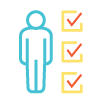Benefits Counseling for Youth
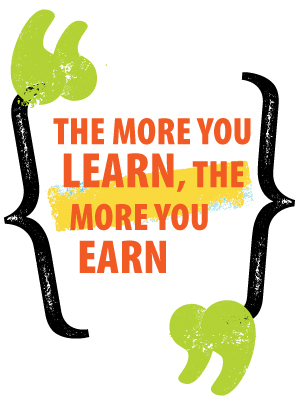
The rules for each Social Security program change when a youth turns 18. Benefits received as a child may stop or be different as an adult.
In addition, there are things a youth can do before age 18 that will help them prepare for changes in benefits. They can also begin to explore career options, have early work experiences, and make plans for getting a job or continuing their education to achieve their career and independent living goals.
Key Messages | Practices | Strategies | Tools

Key Messages
Here are a few important things to be aware of to help guide your conversations with families and youth with disabilities about their benefits.
A youth under the age of 18 may receive Social Security Disability payments for a variety of reasons.
- A youth may receive SSI payments based on their parent’s disability. If their parent with a disability dies, the child is eligible for up to 75% of their parents’ Social Security Disability payments. These kinds of Social Security Disability payments are known as Title II benefits and are not based on a youth’s disability. These benefits are usually paid to the youth’s caregiver and are intended to be used in supporting a child until adulthood. The benefit will end when the youth turns 18 age or 19 if is still in high school.
- A youth may receive Social Security Disability payments based on their own disabilities. This benefit payment is generally paid to the youth’s guardian. The eligibility for receiving Social Security Disability benefits because of a childhood condition are often reviewed and revised. Once a youth qualifies, they will continue to qualify unless it can be shown that the disabling condition has improved significantly or until youth reach adulthood – age 18.
All Social Security Disability cases are reviewed periodically. Typically, these reviews (called Continuing Disability Reviews) occur every three years, though they may be scheduled more or less often depending on the nature and expected duration of the disability. Youth who reach adulthood (turn 18) always have a continuing disability review. This is called an age-18 redetermination.
Age 18 Redetermination
New Disability Requirements
About one in three youth who receive SSI lose their benefit when they turn 18 years old. This is because Social Security has a different set of requirements for Social Security Disability for adults than it has for children. At Age 18, a young person must meet the definition of disability for adults. How disability is defined is different for adults than children. For adults, Social Security’s definition of disability is measured by ability to work. To be eligible, a person must be unable to work at a certain level due to medical impairment. This impairment or disability must last, or can be expected to last, for at least 12 consecutive months or result in death.
New Financial Requirements
One the other hand, the SSI financial requirements often become easier to meet once a youth turns 18. Upon age 18, Social Security looks at the youth’s own income and resources instead of using their parents' financial record. Since many SSI beneficiaries who received benefits as children don't have any other sources of income and don't own any large assets, they likely won't have any problem qualifying financially on their own. Thus, youth who meet the disability requirement, but can't meet SSI's financial requirements due to their parents' income or assets, may qualify for benefits once they turn 18.
Continuing to Qualify for SSI based on Vocational or Other Training Program Involvement
An SSI beneficiary may not lose benefits when turning 18 even if they fail to meet the new disability or financial requirements. A youth can continue to qualify for SSI under the pre-18 rules if they participate in an approved vocational rehabilitation program or special education program that began before the youth turned 18. In other cases, SSI beneficiaries who regularly attend school are allowed to exclude monthly income from their countable income for SSI purposes.
Work Incentive Benefits Counseling
Because these rules are complicated, it's essential for youth and families to meet with a benefits specialist before their 18th birthday. A Work Incentive Benefits Specialist can help youth and families with questions and prepare for changes ahead.
Key Messages to Share about Benefits
- The rules for each Social Security program change when a young adult turns 18. Benefits received as a child may stop or be different as an adult.
- Benefits Specialists can help youth review their financial and health insurance options.
- Benefits Specialists will help youth navigate systems and reporting requirements.
- Benefits Specialists can describe and help youth access work incentives.
Work Incentive Benefits Counseling Data
Why is benefits counseling considered a promising practice?
- Promise youth who met with a Work Incentives Benefit Specialist had three times as many jobs as those who didn't.
- Promise youth who met with a Work Incentives Benefit Specialist three times the total weekly earning amount as youth who didn't.
- Youth who met with a financial coach had twice the total weekly earnings.
- Most youth and families preferred benefits and financial counseling on an ongoing basis instead of receiving all the information at once.
Source: Wisconsin Promise
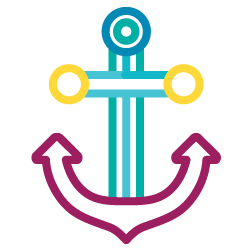
Promising Practices
Following are some goals to strive for to improve an individual's understanding of the benefits they receive and the use of work incentives. You can help individuals connect to resources to supplement services and supports you provide.
Goals of Work Incentives Benefits Counseling:
These are some of the outcomes used to measure the success of work incentive benefits counseling activities.
Individuals know work is possible for people receiving disability benefits.
Individuals explore how work incentives can help them achieve their goals.
Individuals understand the importance of reporting their work and earnings and how to do it.
Individuals know how to contact a work incentive benefit specialist for help and support with their disability benefits.
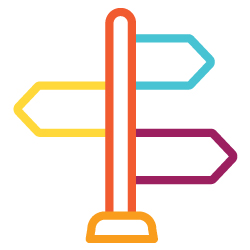
Strategies
Explore these strategies to approach benefits counseling information sharing in a new or different way. These strategies can be incorporated into your practice to address barriers, meet the specific needs of an individual, or approach services in a different way.

Communication and Engagement Strategies
These suggestions are based on lessons learned by Wisconsin Work Incentive Benefit Specialists.
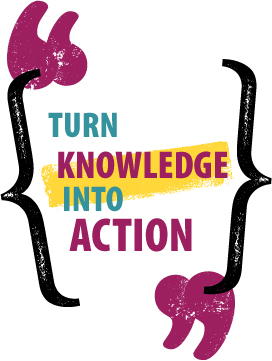
Training Tips
These suggestions are based on lessons learned through Wisconsin Promise and other projects focused on working with youth, individuals, and families.
Tools
Following are some tools and resources to learn more about Work Incentive Benefits Counseling.
Featured Training
Tools and Activities



